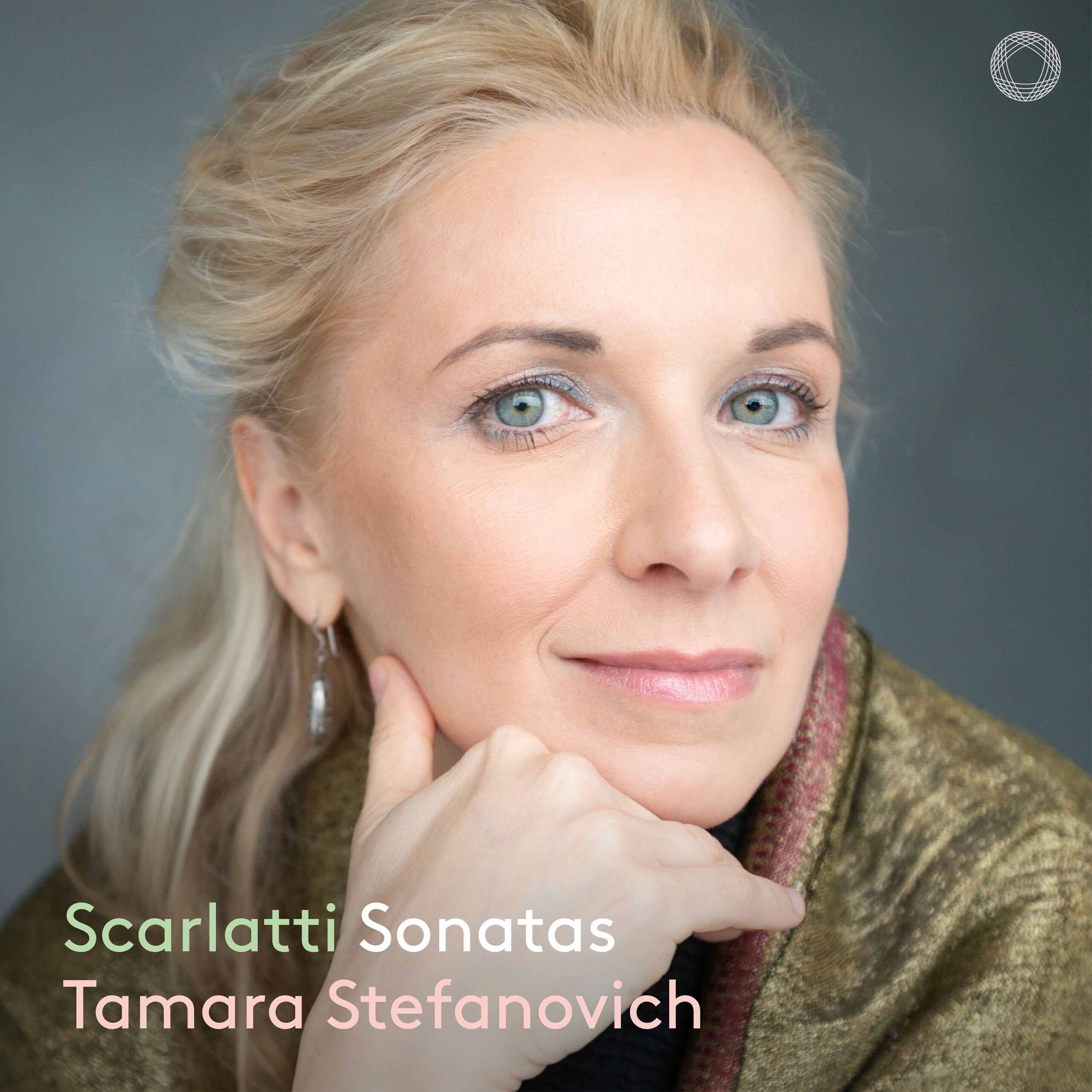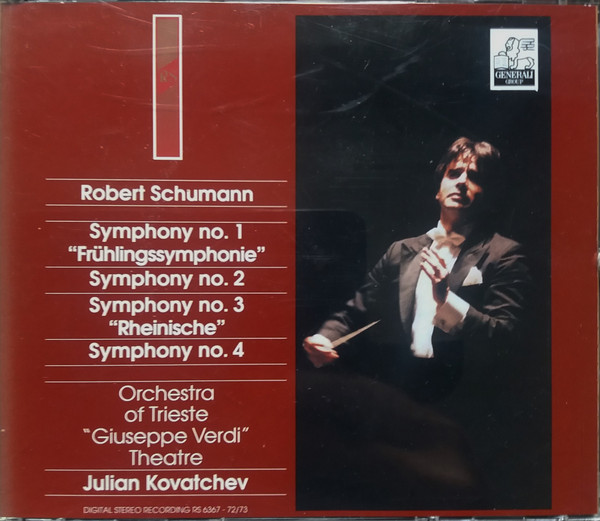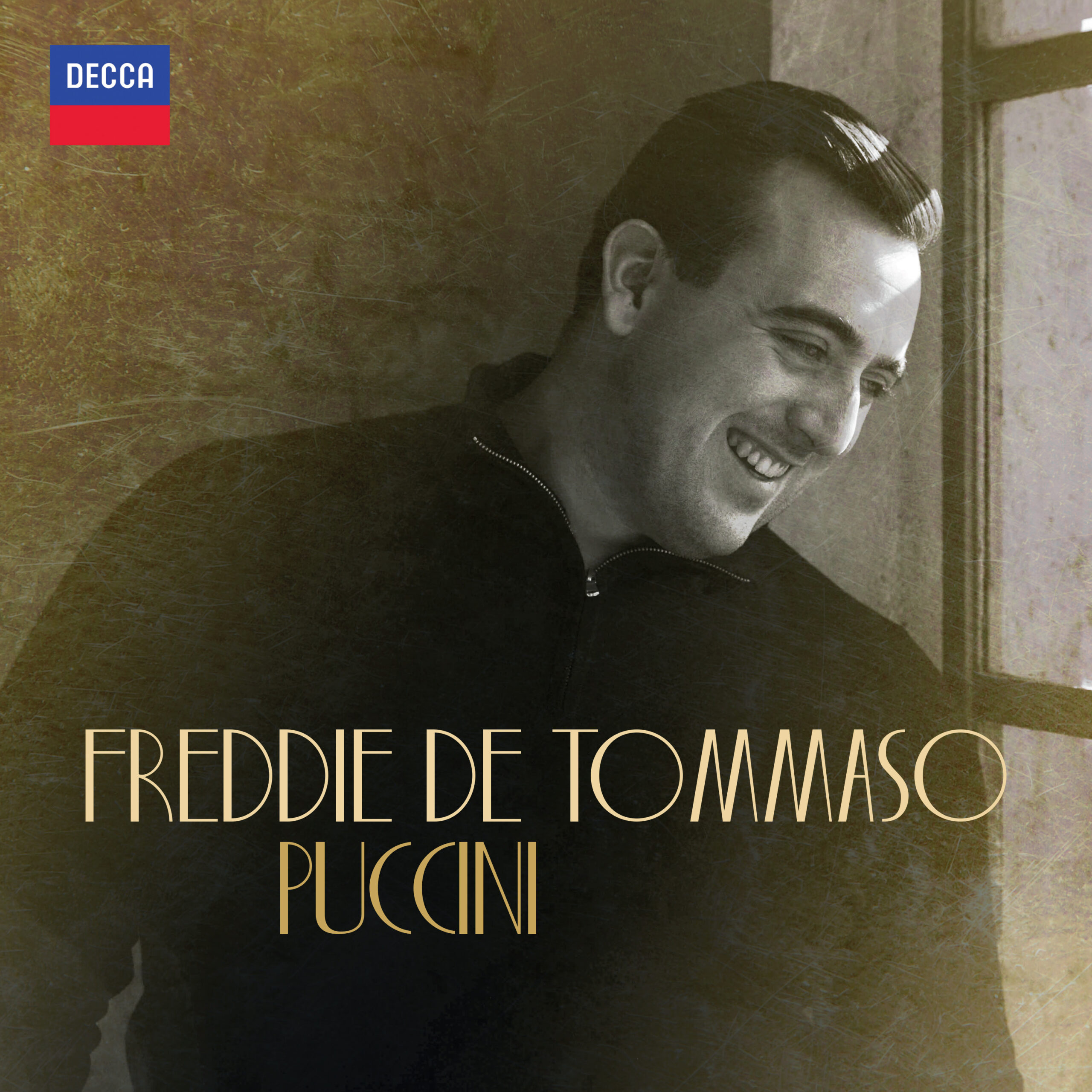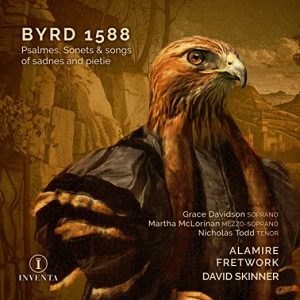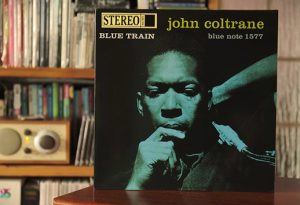It's refreshing not to have to cringe at a "new" singer's technical flaws, as I find myself doing more and more. Klaus Florian Vogt, in a program is mostly drawn from the Heldentenor (heroic tenor) repertoire, offers a clear, compact tone, a reliable legato, and some interpretive smarts.
Vogt's actual instrument sounds, as recorded, more like a bright, forwardly placed lyric, which isn't necessarily bad. He takes advantage of the gentler colors where he can, notably in an intimate Winterstürme; he brings a lovely lightness to the Oberon aria and starts the Prize Song with real delicacy—but would that last really carry in the house? He never tries to force the voice into more heft than it comes by naturally. He begins In fernem Land with a nice verbal immediacy, rather than "just" tone, and his liquid phrasing makes the Freischütz aria sound less square than usual. The Lortzing and Flotow arias, of course, are usually sung by lyric voices—so is the Mozart, outside of Germany—and Vogt performs them with character and style.
All this is not to say that Vogt's technique is fully finished. In the Lohengrin, he sounds constrained maneuvering through the peaks at in-between dynamics. And, if we take Melchior's baritonal low range and hefty, ringing top as the paradigm for a heroic tenor,
Vogt's voice has room to grow into greater tonal amplitude.
I'm not sure what the scene from Die tote Stadt, recorded in concert, is doing here. It's technically a duet, but one thinks of it as a soprano solo, as it's sometimes performed—with or without tenorial assistance—and Manuela Uhl's yowly, uncertain top in the opening paragraph is, frankly, an embarassment. She relaxes later on when Vogt joins her, and, indeed, his contribution, with nice, heady ascents, almost made me forget how badly things started.
The producers, taking a page from the Early Musicke playbook, have scattered a few appropriate orchestral preludes among the arias; unfortunately, they mostly serve to expose Peter Schneider's utilitarian, undistinguished conducting. The triplets in the Lohengrin Act III Prelude are stodgy; the landing on the big chord at 2.13 of the Oberon Overture is conspicuously not together. The introductory bars of Winterstürme feel busy rather than atmospheric. Schneider does better by atmosphere in the Korngold, and, in fairness, has other good moments. The start of the Meistersinger Act III Prelude is searching, almost Expressionist; later, the conductor leans on the accents with purpose. He finds grace in the potentially stodgy Lortzing, and brings good rhythmic energy to the Oberon aria.
I'm looking forward to hearing more from Vogt.
Stephen Francis Vasta is a New York-based conductor, coach, and journalist.
Klaus Florian Vogt, tenor; Manuela Uhl, soprano (in Korngold); Orchester der Deutschen Oper, Berlin/Peter Schneider. Sony Classical 98864. TT: 59.57.
WEBER: Der Freischütz: Durch die Wälder, durch die Auen; Oberon: Overture; Ich juble in Glück und Hoffnung neu. WAGNER: Die Walküre: Winterstürme; Lohengrin: Prelude to Act III; In fernem Land; Die Meistersinger von Nürnberg: Prelude to Act III; Morgenlich leuchtend. MOZART: Die Zauberflöte: Dies Bildnis ist bezaubernd schön. LORTZING: Zar und Zimmermann: Lebe wohl, mein flandrisch Mädchen. FLOTOW: Martha: Ach so fromm. KORNGOLD: Die tote Stadt: Glück, das mir verblieb.
Downloads: amazon.de, mp3jango.com (nine vocal tracks only); itunes.apple.com; musicbox.de.






